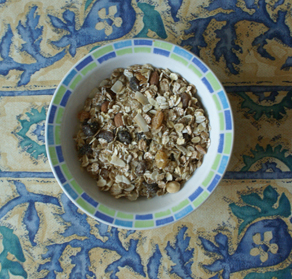While the UK has some of the world’s safest and most authentic food, the threat posed by criminals remains. That is according to an ‘strategic assessment 2020‘ document published by the National Food Crime Unit (NFCU, a law enforcement function of the Food Standards Agency (FSA).
Darren Davies, the retired policeman now Head of the National Food Crime Unit (NFCU), said that vulnerability can exist at any place along the route ‘from farm to fork’, in the UK or overseas (given the complex supply chains, a reason for the horsemeat scandal of 2013, which brought the unit into being in 2015).
He said: “We are committed to preventing and protecting consumers and legitimate businesses from food fraud and are prepared to lead, co-ordinate or support robust action against those committing these crimes. As we face new challenges such as the Covid-19 pandemic, we aim to create a hostile environment for those engaging in food crime and will continue to work with partners to ensure that food is safe and what it says it is.”
The NFCU have identified priority areas of work: including combatting the selling of dangerous non-foods sold for human consumption, preventing illegal shellfish entering the food chain, and increasing understanding of the use of online platforms to aid food crime.
The FSA points out that it is very unlikely that you can catch coronavirus from food.
For the 62-page document, visit the FSA website.
Definition
The NFCU defines food crime as ‘serious fraud and related criminality in food supply chains’. This includes drink and animal feed, and harm to consumers, food businesses or the wider food industry.
What to do
Poor food hygiene are of concern to the Food Standards Agency, but are not defined as food crime. Hygiene concerns should be reported to local government, if there is no direct intention to deceive. Anyone with suspicions of food crime, businesses or consumers, can report it confidentially to the NFCU; online or by phone on 0207 276 8787 (weekdays, office hours; whereas in Scotland an equivalent hotline is freephone, on 0800 028 7926 and 24-hours).
The FSA says that the main types of food crime are:
theft – dishonestly obtaining food, drink or feed products to profit from their use or sale
illegal processing – slaughtering or preparing meat and related products in unapproved premises or using unauthorised techniques
waste diversion – illegally diverting food, drink or feed meant for disposal, back into the supply chain
adulteration – including a foreign substance which is not on the product’s label to lower costs or fake a higher quality
substitution – replacing a food or ingredient with another substance that is similar but inferior
misrepresentation – marketing or labelling a product to wrongly portray its quality, safety, origin or freshness; and
document fraud – making, using or possessing false documents with the intent to sell or market a fraudulent or substandard product.
Suspected food crime in Scotland should be reported to Food Standards Scotland.
More in the November 2020 print edition of Professional Security magazine.










